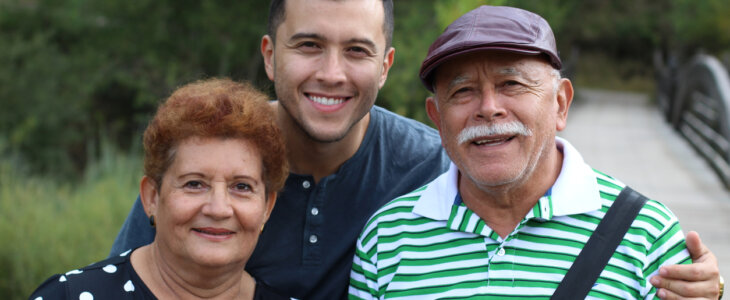Bringing your loved ones to the United States or helping them stay here legally is one of the most meaningful things you can do for your family. At Yaqubie Law, we support New York families through the process of applying for a family-based green card. Whether your relative is overseas or already in the U.S., we’re here to guide you through each step. This blog breaks down the family-based green card process so you can understand what to expect and how we can help.
Who Can Apply for a Family-Based Green Card?
Family-based green cards fall into two main categories:
- Immediate relatives of U.S. citizens: spouses, unmarried children under 21, and parents.
- Family preference categories: these include unmarried adult children, married children, and siblings of U.S. citizens, as well as spouses and children of green card holders.
The process tends to move faster for immediate relatives because there’s no cap on the number of visas issued in that category. For everyone else, the wait depends on visa availability, which is determined by a set quota and tracked in the monthly Visa Bulletin.
Step 1: Filing the I-130 Petition
The first step is filing Form I-130, the Petition for Alien Relative. This form helps U.S. Citizenship and Immigration Services (USCIS) confirm that a valid family relationship exists between you and your relative.
As a U.S. citizen or green card holder, you’re the petitioner. You’ll need to submit evidence of your relationship, such as:
- A birth certificate or adoption decree for children
- A marriage certificate for spouses
- Proof of your U.S. citizenship or green card
It’s essential to send a complete, accurate packet. Mistakes or missing documents can cause delays. We help you put together a strong petition, making the process less stressful.
Step 2: Waiting for Approval and Visa Availability
Once you’ve filed the I-130, USCIS will review your petition. If it’s approved, the next step depends on which family category your relative falls into.
- If they’re an immediate relative, a visa is usually available right away.
- If they’re in a preference category, they’ll need to wait for their priority date to become current.
The Visa Bulletin, published monthly by the U.S. Department of State, shows where things stand. We keep a close eye on these dates and let you know when it’s time to move forward.
Step 3: Adjusting Status or Applying Abroad
After the I-130 is approved and a visa is available, your relative can take the next step. This depends on whether they’re inside or outside the U.S.
- Inside the U.S.: Your relative may be eligible to file Form I-485 (Application to Register Permanent Residence or Adjust Status).
- Outside the U.S.: They will complete consular processing, which involves an interview at a U.S. embassy or consulate in their home country.
In either case, they’ll need to attend an interview, complete a medical exam, and pass background checks. We help you figure out the proper process based on your family’s unique circumstances. If consular processing is required, we help prepare the necessary forms and explain what to expect at the interview.
Common Delays and How We Help
There are a few issues that can slow down the process. These include:
- Missing or incorrect paperwork
- A request for additional evidence from USCIS
- Past immigration violations or criminal history
We take care to avoid unnecessary delays by reviewing your documents thoroughly and helping you prepare for each step in advance. If an issue does come up, we’re ready to respond quickly and help you move forward without added stress.
Contact an Experienced Garden City Family-Based Green Card Attorney
Applying for a family-based green card can feel overwhelming, but you don’t have to handle it on your own. At Yaqubie Law, we help families across New York stay connected and secure legal status for their loved ones. If you’re ready to take the first step or have questions about your situation, we invite you to contact us. Let’s talk about how we can help you bring your family together — and keep them together.
Yaqubie Law, located in Garden City, also serves Manhattan, Brooklyn, Bronx, Queens, Staten Island, Syosset, Nassau County, Suffolk County, Long Island, and the greater New York area.



